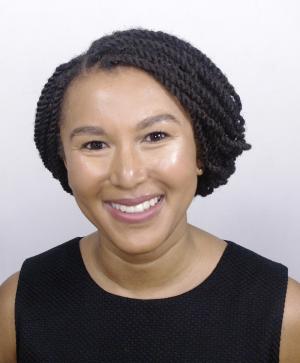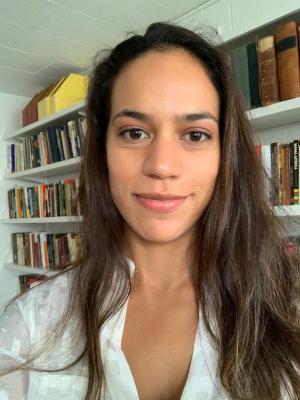
RESEARCH INTERESTS
Independent Africa; law; military history; crime
BIOGRAPHY
Samuel Fury Childs Daly writes about law, warfare, and the politics of military regimes. Most of his work describes the history of Africa since independence. He asks how soldiers and judges think: how do military dictatorships use law, and how do judiciaries check their powers – or enable them? He also studies what warfare does to legal systems. Armed conflict degrades normative orders, and sometimes it creates new ones. How do people make order and resolve disputes in wartime? His first book, A History of the Republic of Biafra: Law, Crime, and the Nigerian Civil War (Cambridge University Press, 2020), connects the Nigerian Civil War to the fraud and violent crime that wracked Nigeria in its wake. Using an original body of legal records from the secessionist Republic of Biafra, it traces how technologies, survival practices, and moral codes that emerged during the fighting lasted long after the war was over. The line between martial violence and violent crime can blur on the battlefield, and once that line is gone it is hard to redraw it.
His forthcoming book, Soldier’s Paradise: Militarism in Africa After Empire, describes one of the twentieth century’s most widespread ideologies – militarism. Across Africa, the late twentieth century was a time of military coups and martial “revolutions.” The men who staged them had utopian visions. In Nigeria and other former British colonies, army officers remade their countries along martial lines. Some soldiers tried to drum colonialism’s bad habits out of people through military-style discipline, or condition civilians to think more like they did. Others believed that making their countries into vast open-air barracks was what would make them truly “free.” They saw judges and lawyers as allies in that mission, but law wasn’t the disciplinary tool they thought it was. Military regimes found that people could turn law back against them, and only some judges shared their world-making aspirations. Soldier’s Paradise shows how law facilitated militarism, and, at times, worked against it. Long submerged by more hopeful ideological currents, militarism is resurfacing in African politics. Soldier’s Paradise describes where it came from.
He is currently conducting research for two projects – a global history of military desertion, and a book about military imposters and role-players. His work has been published in venues including Past & Present, Comparative Studies in Society and History, and the Los Angeles Review of Books. He holds a PhD in History from Columbia University, an MPhil from the University of Cambridge, and an MA from the School of Oriental and African Studies, University of London. He previously taught at Duke University.
Recent Research / Recent Publications
Soldier’s Paradise: Militarism in Africa After Empire, Duke University Press, 2024.
- Winner of the Law and Society Association J. Willard Hurst Book Prize for the best book in legal history in any region or time period published in 2020
- Winner of the African Studies Association of the United Kingdom Fage & Oliver Prize for the best book on Africa published in 2020 or 2021
- Honorable Mention for the American Society for Legal History Peter Gonville Stein Book Award for the best book in non-US legal history published in 2020
- Reviewed in: Times Literary Supplement, American Historical Review, Journal of Social History, Journal of Interdisciplinary History, Journal of Contemporary History, H-Net Africa, International Journal of African Historical Studies, The Historian, Canadian Journal of African Studies / Revue canadienne des études africaines, Journal of African Military History, Choice, Business Day [Lagos], Law & Social Inquiry (long-form review); book forum in Cultural Dynamics

PhD 2017 (history) University of Pennsylvania
AM 2009 (Middle Eastern, South Asian, and African studies) Columbia University
RESEARCH INTERESTS
African history; Middle Eastern history; imperialism; global nineteenth century; history of death; African diaspora; race and slavery; visual and material culture
BIOGRAPHY
Dr. K.J. Hickerson (she/her) is cultural and political historian of the nineteenth and early twentieth century Nile Valley. Her research stands at the nexus between African history, the study of the African diaspora in the Middle East, and the study of imperialism. Dr. Hickerson’s book manuscript-in-progress, Mortal Struggles: Death and Empire in the Nile Valley, examines cultural practices surrounding death in Sudan throughout the era of Ottoman-Egyptian colonialism, the independent state known as the Mahdiyya, and the early years of the co-dominion of Sudan by Egypt and Great Britain. Her other research and writings address the politics of photography, art, fashion, and medicine in the Nile Valley and beyond.
Before coming to UChicago, Dr. Hickerson was a Postdoctoral Fellow at the Middle East Center at the University of Pennsylvania. She was the Sir William Luce Fellow at Durham University and has received fellowships and grants from the Huntington Library, the Boston Athenæum, the British Academy, the African Studies Association, among others and her writings have appeared in Durham Middle East Papers, Journal of Northeast African Studies; Encyclopaedia of Islam, 3rd edition; and the Sudan Studies Bulletin.

Yale University, PhD '20
BIOGRAPHY
Thuto Thipe is an Assistant Professor of African History in the Department of History. Her research focuses on social and legal history of 19th and 20th century South Africa. Her manuscript in progress, Black Freehold: Landownership in Alexandra Township, tells the story of the history of land ownership in Alexandra Township, near Johannesburg, from its founding in 1912 to 1979 when the state had stripped black land owners of their freehold land ownership and forced removals had largely displaced Alexandra residents. It moves from the examination of individual buildings and yards to a structural analysis of the Township and its development to show how different elements of land ownership rights combined to produce a dynamic, black-controlled Township that was at odds with colonists’ view of black people’s social and political place in South African society. The disruption that black people’s freehold land ownership in Alexandra caused to white supremacist order drove the South African state to invest enormous financial resources and political capital in dismantling black freehold rights, physically demolishing large parts of the Township, and forcibly moving tens of thousands of people from Alexandra in efforts to destroy the social realities that residents produced under freehold.
She holds a PhD in History and African American Studies from Yale University, Masters in Gender Studies from the University of Cape Town, where she also held positions as a lecturer and researcher, and BA from Macalester College.
Recent Research / Recent Publications
- “Photographing Home Life in Alexandra between the 1930s and 1970s,” in Foundational African Writers: Peter Abrahams, Noni Jabavu, Sibusiso Nyembezi, Es’kia Mphahlele. Eds. Bhekizizwe Peterson, Khwezi Mkhize and Makhosazana Xaba. University of the Witwatersrand Press, 2022.
- “Land and reparation politics and policy after apartheid,” in The Oxford Handbook of South African History Ed. Daniel Magaziner. Oxford University Press, 2020.
- With de Souza, Monica and Luwaya, Nolundi. “‘The Advert Was Put Up Yesterday’: Public Participation in the Traditional Courts Bill Legislative Process.” New York Law Review 60(2) (2015/2016): 431-463.
- “The Boundaries of Tradition: An examination of the Traditional Leadership and Governance Framework Act.” Harvard Human Rights Journal, Online Symposium (2014).
- “Defining Boundaries: Gender and Property Rights in South Africa’s Traditional Courts Bill.” Laws 2(4) (2013): 483-511.

Stanford University, PhD '00
Emily Lynn Osborn is Associate Professor in the Department of History and the College.
Affiliated Faculty, Center for Gender and Sexuality Studies
Faculty Affiliate, Center for the Study of Race, Politics, and Culture
Faculty Board, Center for International Social Science Research
Faculty Board, Pozen Family Center for Human Rights
BIOGRAPHY
Osborn is a historian of Africa, with a particular interest in precolonial and colonial West Africa. She is currently the Faculty Director of the Senegal study abroad program, and she has also served as co-director of the Committee on African Studies, chair of the College’s British fellowships committee, and on the Faculty Boards of the Center for International Social Science Research and the Pozen Family Center for Human Rights. She is also the Faculty Director of the Social Sciences Postdoctoral Teaching Fellows program and an editor of The Journal of African History.
Her first book, Our New Husbands Are Here: Households, Gender, and Politics in a West African State from the Slave Trade to Colonial Rule, uses gender analysis to investigate the intertwined history of household making and statecraft in Kankan, Upper Guinée (located in Guinea). Other topics on which Osborn has published include the history of technology transfer and diffusion in West Africa; the role of intermediaries in colonial rule, the Anthropocene in Africa; the history and cultural significance of the color red in the Atlantic world; and the relationship in West Africa of containers and mobility. She has also researched the effort by the United States government in the 1950s and 1960s to export the model of the land grant university to Africa.
Osborn earned her A.B. from the University of California, Berkeley, and her Ph.D. from Stanford University. Her research has been supported by Fulbright IIE and Fulbright-Hays fellowships and by the American Council of Learned Societies and Social Science Research council. Before coming to the University of Chicago, Osborn served as the Carl E. Koch Assistant Professor of History at the University of Notre Dame.
TEACHING INTERESTS
At the University of Chicago, Prof. Osborn teaches courses on precolonial, colonial, and postcolonial African history; graduate and undergraduate seminars on African historiography; oral sources of history; gender and state-craft; as well as histories on enslavement, the transatlantic commerce in enslaved peoples, and the making of the Atlantic world.
Recent Research / Recent Publications
- “Containers and Mobility in West Africa.” In "On Containers," edited by Andrew Shyrock and Daniel Lord Smail. Special issue, History and Anthropology 29, no. 1 (2018): forthcoming.
- Editor, The Journal of African History.
- "Containers, Energy, and the Anthropocene in West Africa." In Economic Development and Environmental History in the Anthropocene: Perspectives on Asia and Africa, edited by Gareth Austin. New York: Bloomsbury, 2017.
- "From Bauxite to Cooking Pots: Aluminum, Chemistry, and West African Artisanal Production." In "Exploring Global History through the Lens of History of Chemistry," edited by Lissa Roberts. Special issue, History of Science 54, no. 4 (Dec. 2016): 425–42.
- "Red Echoes of Enslavement: Cochineal Red, West Africa, and the Slave Trade." In A Red Like No Other: How Cochineal Colored the World, edited by Carmella Padilla and Barbara Anderson. New York: Skira Rizzoli, 2015.
- "Work and Migration." In The Oxford Handbook of Modern African History, edited by Richard Reid and John Parker. Oxford: Oxford University Press, 2013.
- Our New Husbands Are Here: Households, Gender, and Politics in a West African State from the Slave Trade to Colonial Rule. Athens: Ohio University Press, New African Histories, 2011.
- "Casting Aluminium Cooking Pots: Labour, Migration and Artisan Production in West Africa’s Informal Sector, 1945–2005." African Identities 7, no. 3 (Fall 2009): 373–86.
- "Loyalty, Perfidy, and Scandal in Guinée Française: The Noirot-Penda Affair." In Intermediaries, Interpreters and Clerks: African Employees and the Making of Colonial Africa, edited by Benjamin N. Lawrance, Emily Lynn Osborn, and Richard L. Roberts. Madison: University of Wisconsin Press, 2006.
- Coauthor with Richard Roberts and Benjamin Lawrance. "Introduction: Intermediaries and the Making of Colonial Africa." In Intermediaries, Interpreters and Clerks: African Employees and the Making of Colonial Africa, edited by Benjamin N. Lawrance, Emily Lynn Osborn, and Richard L. Roberts. Madison: University of Wisconsin Press, 2006.
- "'Rubber Fever,' Commerce and French Colonial Rule in Upper Guinée, 1890–1913." Journal of African History 45 (2004): 445–65.
- "'Circle of Iron': African Colonial Employees and the Interpretation of Colonial Rule in French West Africa, 1890–1910." Journal of African History 44 (2003): 27–48. Reprinted in The Rise and Fall of Modern Empires: Social Organisation, vol. I, edited by Owen White. Farnham, England: Ashgate, 2013.
- Delivered convocation address, Graham School [20 mins]
- Participates in Q&A on how to teach the Anthropocene, EuropeNow, with syllabus
- Received 2016 Quantrell Award for Excellence in Undergraduate Teaching
- Coorganized "Climate Change: Disciplinary Challenges to the Humanities and Social Sciences"
- Organized "Global Midwest" conference
- Discusses effective public speaking for AHA Today (blog)

University of Virginia, PhD '15
BIOGRAPHY
Mary Hicks is a historian of the Black Atlantic, with a focus on transnational histories of race, slavery, capitalism, migration and the making of the early modern world. Her first book, Captive Cosmopolitans: Black Mariners and the World of South Atlantic Slavery, 1721-1835, reimagines the history of Portuguese exploration, colonization and oceanic commerce from the perspective of enslaved and freed black seamen laboring in the transatlantic slave trade. As the Atlantic world’s first subaltern cosmopolitans, black mariners, she argues, were integral in forging a unique commercial culture that linked the politics, economies and people of Salvador da Bahia with those of the Bight of Benin.
More broadly, she seeks to interrogate the multiplicity of connections between West Africa and Brazil through the lens of mutual cultural, technological, commercial, intellectual and environmental influences and redefine how historians understand experiences of enslavement and the middle passage. In addition to investigating the lives of African sailors, she also explores the cultural and religious sensibilities of enslaved and freed African women in living in 19th century Salvador da Bahia. Along these lines, her second book will detail the emergence and elaboration of new gendered and racialized subjectivities in the wake of Portugal’s initiation of trade with West Africa in the fifteenth century.
Prof. Hicks received her B.A. from the University of Iowa and her Ph.D. from the University of Virginia, where she was a recipient of the Jefferson Fellowship. She has also received the Ford Foundation Dissertation Fellowship and the Mamolen Fellowship at the Hutchins Center at Harvard University. She is the winner of the Southern Historical Association’s Latin American & Caribbean Section Dissertation Prize and been a finalist for the CGS/Proquest Distinguished Dissertation Award for the Humanities and Fine Arts.
Recent Research / Recent Publications
-
Captive Cosmopolitans: Black Mariners and the World of South Atlantic Slavery, 1721-1835 (under contract with Omohundro Institute of Early American History & Culture for The University of North Carolina Press), forthcoming
-
“Transatlantic Threads of meaning: West African Textile entrepreneurship in Salvador da Bahia, 1770- 1870,” Slavery & Abolition 41:4 (December 2020), 695-722
-
“Financing the Luso-Atlantic Slave Trade: Collective Investment Practices from Portugal to Brazil, 1500-1840,” Journal of Global Slavery 2:3 (2017), 273-309
-
“João de Oliveira’s Atlantic World: Mobility and Dislocation in Eighteenth-Century Brazil and the Bight of Benin,” in The Many Faces of Slavery: New Perspectives on Slave Ownership and Experiences in the Americas Eds. Lawrence Aje and Catherine Armstrong, (London: Bloomsbury Press, 2019)
-
“Middle Passage,” in 400 Souls, Eds. Keisha N. Blain and Ibram X. Kendi (New York: Basic Books, 2021)
-
Review of Sharla Fett’s Recaptured Africans: Surviving Slave Ships, Detention and Dislocation in the Final Years of the Slave Trade in Black Perspectives (November 16, 2018)
-
Review of Hazel V. Carby’s Imperial Intimacies: A Tale of Two Islands in Black Perspectives (February 5, 2021)